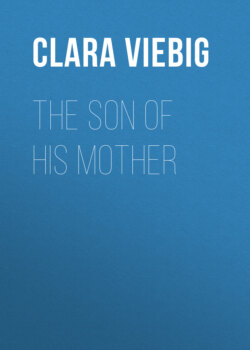Читать книгу The Son of His Mother - Clara Viebig - Страница 8
На сайте Литреса книга снята с продажи.
ОглавлениеAC'est le mien.
Käte noticed it with a certain angry surprise. How indifferent the woman was. Was she not holding the child as though it were a useless burden? She was filled with envy, torturing envy, and at the same time with hot anger. That woman certainly did not deserve the child. She would have liked to have torn it out of her arms. How rough she looked, what coarse features she had, what a hard expression. She might really frighten anybody terribly with her black looks. But now--now her expression brightened; ah, she had seen the piece of money Paul had taken out of his purse.
Ugh, what a greedy expression she had now.
The fruit-picker stretched out her hand--there was a large shining silver coin--and when it was given to her, when she held it in her hand she drew a deep breath; her brown fingers closed round it tightly.
"Merci." A smile passed quickly across the sullen face in which the corners of the mouth drooped morosely, her blunted expression grew animated for a moment or two. And then she prepared to trudge away, the shapeless bundle containing the child on one arm, the heavy pail on the other.
They now saw for the first time how poor her skirt was; it had patches of all colours and sizes. Dried heather and fir-needles stuck to her matted and untidy plaits, as they hung out from the gaudily spotted cotton handkerchief; she had an old pair of men's hobnailed shoes on her feet. They did not know whether she was old or young; her stout body and hanging breasts disfigured her, but that her face had not been ugly once upon a time could still be seen. The little one resembled her.
"You've got a pretty child," said Paul. To please his wife he started a conversation again with this woman who was so inaccessible. "How old is the boy?"
The fruit-picker shook her head and looked past the questioner apathetically. There was no getting anything out of the woman, how terribly stupid she was. The man wanted to let her go, but Käte pressed up against him and whispered: "Ask her where she lives. Where she lives--do you hear?"
"Heigh, where do you live, my good woman?"
She shook her head once more without saying a word.
"Where do you come from, I mean? From what village?"
"Je ne co'pr nay,"[A] she said curtly. But then, becoming more approachable--perhaps she hoped for a second gift of money--she began in a whining, plaintive voice: "Ne n'ava nay de pan et tat d's e'fa'ts."[B]
"You're a Walloon, aren't you?"
"Ay[C]--Longfaye." And she raised her arm and pointed in a direction in which nothing was to be seen but the heavens and the Venn.
Longfaye was a very poor village in the Venn. Paul Schlieben knew that, and was about to put his hand into his pocket again, but Käte held him back, "No, not her--not the woman--you must hand it over to the vestryman for the child, the poor child."
AJe ne comprends pas.
BNous n'avons pas de pain et tant d'enfants.
CYes.
She whispered softly and very quickly in her excitement.
It was impossible for the woman to have understood anything, but her black eyes flew as quick as lightning from the gentleman to the lady, and remained fixed on the fine lady from the town full of suspicion: if she would not give her anything, why should she let them ask her any more questions? What did they want with her? With the curtest of nods and a brusque "adieu" the Walloon turned away. She walked away across the marsh calmly but with long strides; she got on quickly, her figure became smaller and smaller, and soon the faded colour of her miserable skirt was no longer recognisable in the colourless Venn.
The sun had disappeared with the child; suddenly everything became grey.
Käte stood motionless looking in the direction of Longfaye. She stood until she shivered with cold, and then hung heavily on her husband's arm; she went along to the inn with dragging feet, as though she had grown tired all at once.
The mist began to conceal the bright midday. Cold damp air, which wets more than rain, made their clothes clammy. The stinging flies from the swamps flew in big swarms through the door and windows of the inn; a smouldering peat-fire was burning within, fanned to a bright flame by means of dry fir twigs, and the flies clung to the wall near the fire-place and to the ceiling--no, they would not die yet.
Autumn had come, sun and warmth had disappeared from the Venn, it was wise to flee now.
But outside, in the depths of the wilds above the highest point in the Venn, a lonely buzzard was moving round and round in a circle, uttering the piercing triumphant cry of a wild bird. He was happy there in summer as in winter. He did not want to leave.
